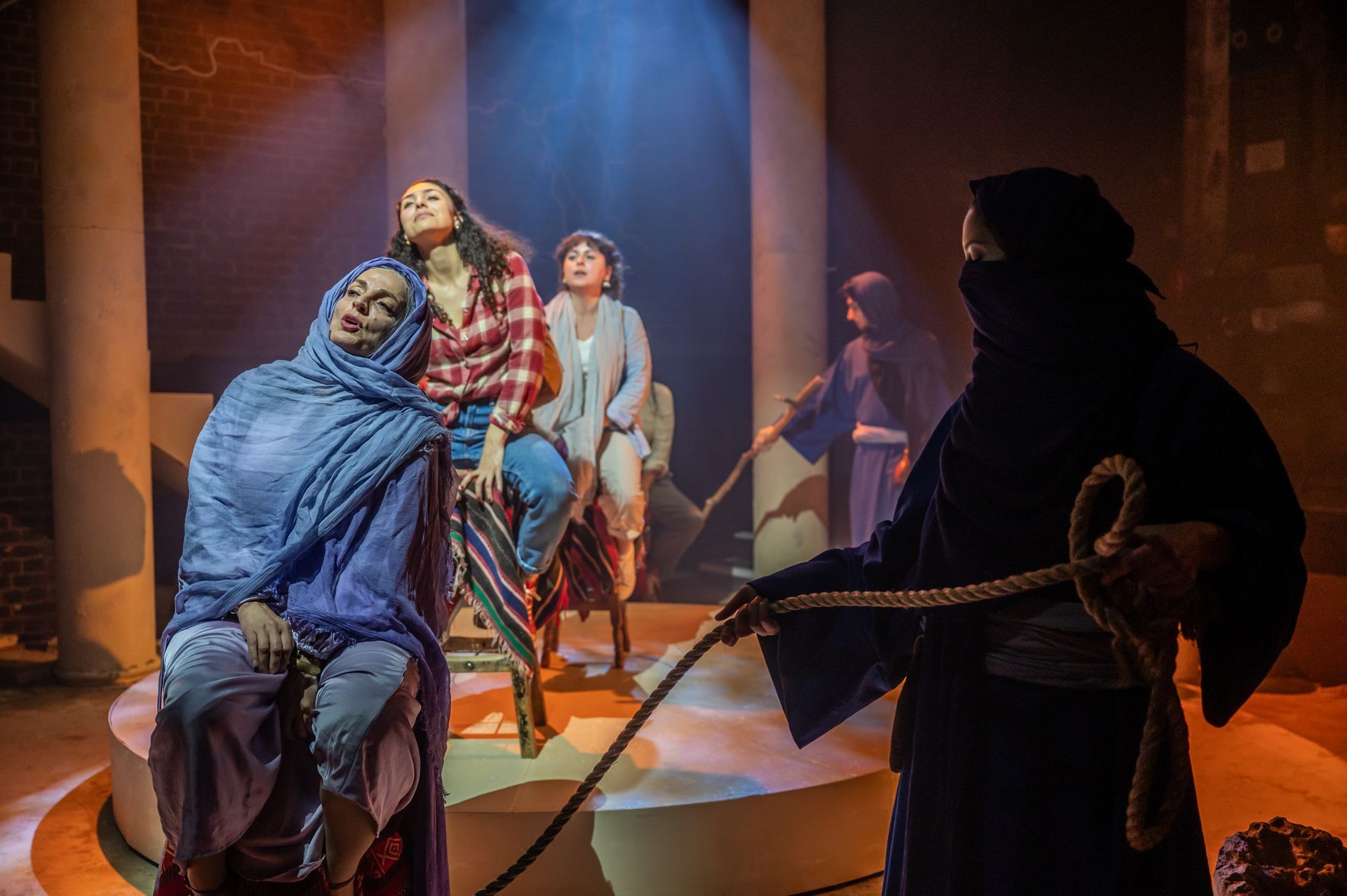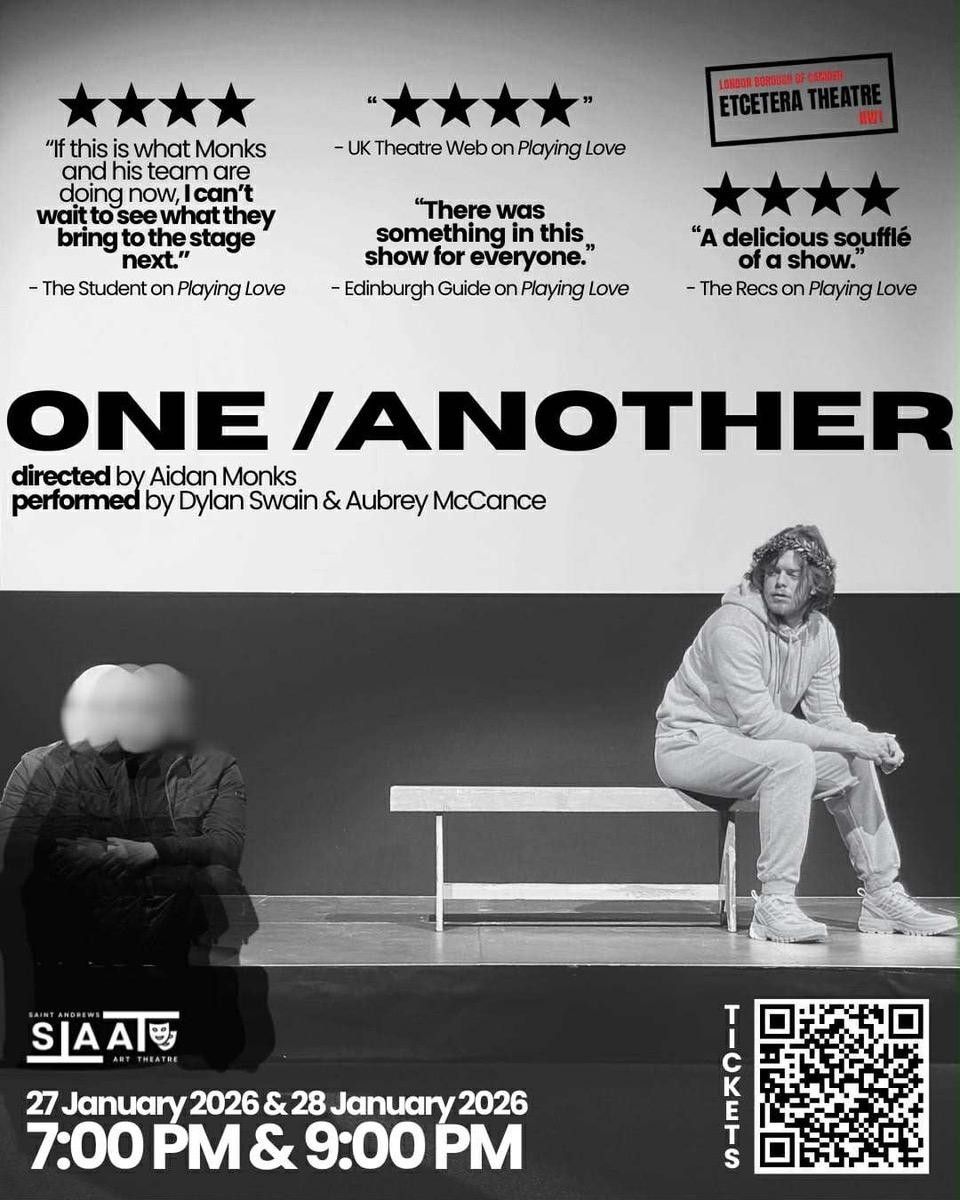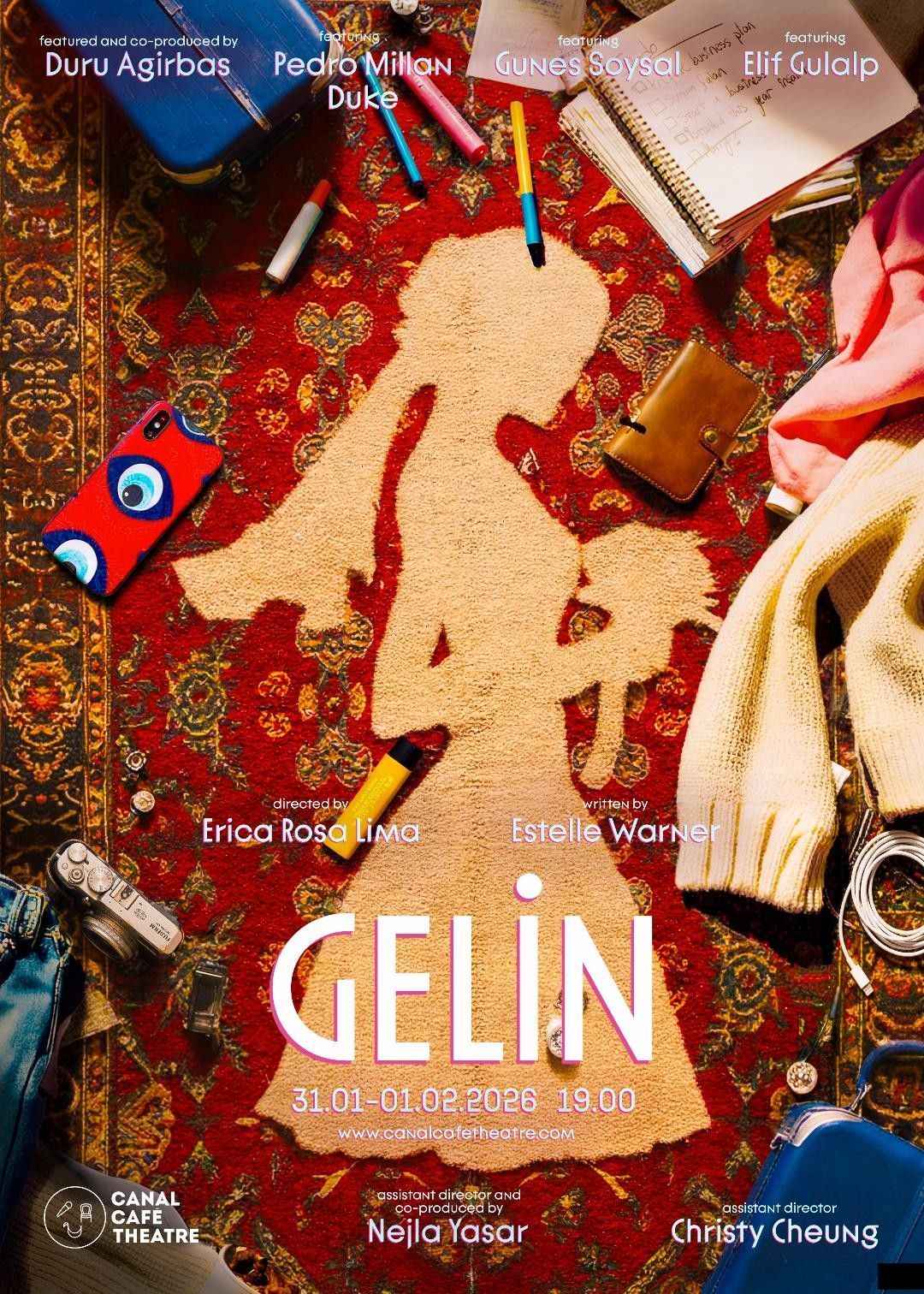REVIEW: WOMEN WHO BLOW ON KNOTS at The Arcola 25 Oct - 23 November 2024

Photos: Kate Hockenhull
‘Gender politics meets geopolitics’ ★★★
Adapted by Leyla Nazil from the celebrated novel of the same name by Turkish author, Ece Temelkuran, this is the first time this feminist, middle eastern road movie of a book takes to the stage. At close to two hours with an interval, it weaves together myth, legend, and history and focuses on three key characters: Maryam (Livia Arditty), a high-flying Egyptian academic; Amira (Antonia Salib), a Tunisian dancer and online activist, and Eve (Gamze Sanil), a Turkish journalist. They are befriended by Madame Lilla (Nicole Ansari-Cox), a mysterious older woman, beguiled by her lyrical wisdom and non sequiturs.
When the younger women all find themselves in tricky predicaments, free-spirited Madame Lilla, once a courtesan for the Egyptian rulers, suggests they take a journey South. It’s a strange suggestion given this is the Arab Spring, a time of unrest and revolution, when leaders across the middle east are being deposed and change hovers in the air, alongside shells and drones but embark on the journey they do, driven by a strange man with an eyepatch to Libya, Lebanon, Tripoli…The name Dido means ‘wanderer’ and the goddess, Dido, the daughter of the king of the Phoenician city, Tyre is a recurring figure. As well as being the research subject of Maryam, Dido is also an inspirational touchstone and “a woman must never forget her Goddess.”
As this travelling band of independent women head to dangerous territories across multiple borders and countries, the true purpose of Madame Lilla’s trip is revealed. Each of the women carry emotional baggage and as the journey continues, secrets are divulged. Of the four characters, it's hardest to understand the dramatic function of the journalist character who compared to the others, is rendered flat and the least dynamic. ‘Women who Blow on Knots’ is a phrase extracted from the Koran which refers to witchcraft and a method of sorcery. Although the literary source material is described by several reviewers as “fast paced” this adaptation is not.
The first half is highly discursive with lots of static conversation, much of it expositional, which serves to introduce the audience to the characters and their backstories. This is at the expense of the second half where action takes place quickly yet manages to be simultaneously laboured. It’s possible that the dramatic pace and realisation were hampered by a too loyal interpretation of the novel. The play comes alive when there is movement, driving in the car on a rotating platform or undulating rhythmically on camels across the desert. Never have bar stools seemed more camel-like. For a play that explores geographically specific female agency and autonomy, this is fitting.
The music by sound designer, Ogux Kaplangi is wonderfully evocative as is the set by Neil Irish which recalls both ancient ruins and contemporary destruction. It’s insightful to hear these female perspectives replete with belly-dancing and middle Eastern musical melodies. Yet despite the heavyweight political backdrop, this feminist tale is disappointingly driven by a male figure who wields way too much power and some of the narrative feels inconsistent or unconvincing.
The female characters in ‘Women Who Blow on Knots’ are spirited, unbowed, determined and, the symbolic textual links to witches and goddesses is compelling. It generated some great audience reaction and certainly had its moments, some comic, some dramatically potent and some reflective. In this play where gender politics meets geopolitics, it’s the universal bonds of sisterhood and motherhood you come away remembering rather than any personal, political, or geographic differences.
Box Office https://www.arcolatheatre.com/whats-on/women-who-blow-on-knots-2/







